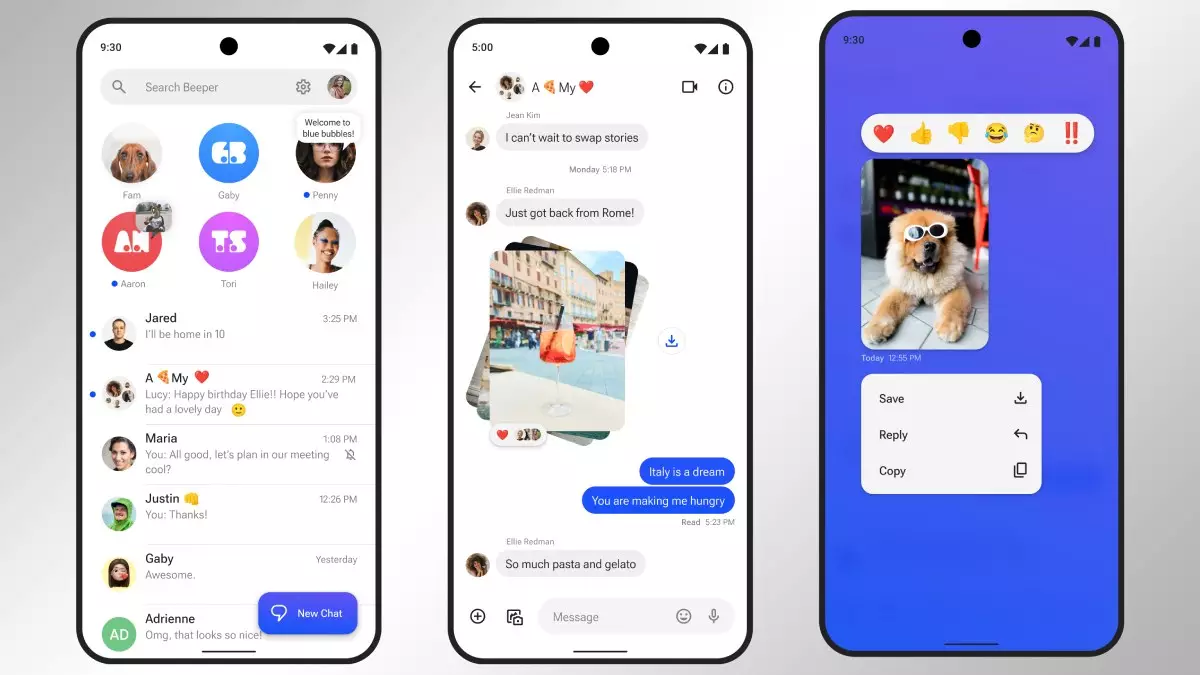Beeper, the messaging platform that dedicated its resources to bringing Apple’s iMessage to Android devices, recently released what seems to be its final update for the service. Despite multiple attempts and workarounds, Beeper has come to the conclusion that its efforts to make iMessage work on Android are no longer sustainable. In a blog post, the company expressed its frustrations and acknowledged the difficulties of competing against the largest company on Earth. The constant cat-and-mouse game with Apple, where Beeper’s credibility takes a hit each time their workaround goes down, has ultimately led to the decision to shift focus.
Beeper announced that it does not plan to revive its iMessage efforts if its latest fix is thwarted by Apple. Instead, the company will open-source the iMessage connection software used in Beeper Mini and Beeper Cloud, allowing anyone interested to use or continue its development. This decision offers a glimmer of hope for those who long for iMessage on Android. By embracing an open-source approach, Beeper hopes that others will take up the challenge and build upon the foundation it has created.
The company’s new long-term goal is to create “the best chat app on Earth.” While it is unclear what features or innovations Beeper plans to bring to the table, this shift in focus indicates a desire to create something unique and remarkable that can stand on its own merits. Beeper recognizes that competing directly with Apple in the messaging space is an uphill battle, and it is wise to explore alternative avenues for growth and success.
Apple has raised concerns about the security and privacy risks posed by Beeper’s app. In response, Beeper vehemently denies these claims, asserting that Beeper Mini is not a malicious app and has implemented rigorous security measures. Through a detailed rebuttal, the company seeks to reassure users that they can trust Beeper Mini with their sensitive information. However, it may be challenging for Beeper to overcome the skepticism surrounding security and privacy, given the dominance of Apple’s ecosystem and the inherent trust users place in the company.
The Workarounds and Limitations
Beeper’s latest update, prior to the final release, enabled Android users to register their phone numbers on the Beeper Mini app, resulting in their messages appearing in blue on iMessage. Unfortunately, this functionality required users to have access to an old jailbroken iPhone, a Mac computer, or a friend with a Mac. While Beeper provided detailed instructions for getting iMessage to work reliably on Android using a jailbroken iPhone, this workaround is not accessible to all users. The dependence on external devices and tools limits the potential audience for Beeper Mini, further complicating Beeper’s mission to bring iMessage to Android.
Additionally, Beeper’s previous attempts at bringing iMessage to Android devices involved using a Mac computer as a bridge for the service to work. This method required continual access to a Mac, making it inconvenient for Android users seeking a seamless messaging experience. Although Beeper’s intentions have been commendable, the reliance on external resources and workarounds may have contributed to the unsustainable nature of their iMessage project.
Beeper’s decision to discontinue its iMessage efforts for Android raises questions about the future of iMessage on the platform. While Beeper’s open-sourcing of its iMessage connection software provides opportunities for others to pick up where they left off, it remains uncertain if any developers will take on the challenge. With Apple’s strong stance on privacy and security, it is unlikely that they will officially support iMessage on rival platforms anytime soon.
Despite the challenges, the desire for iMessage on Android persists among many users. The absence of a unified messaging experience across platforms creates a fragmentation that inconveniences those navigating between iOS and Android. While Beeper’s journey to bring iMessage to Android has come to an end, their attempt has highlighted the demand for cross-platform messaging apps that seamlessly connect users regardless of their chosen operating systems.
Beeper’s final update marks the end of its iMessage project for Android. The company acknowledges the unsustainability of its efforts and the challenges posed by Apple’s dominance. With a shift in focus towards building a new chat app, Beeper hopes to find success in a different direction. The road to bringing iMessage to Android remains uncertain, but the demand for such a service persists. Only time will tell if another company or developer will rise to the challenge and successfully bridge the messaging gap between iOS and Android.

Leave a Reply